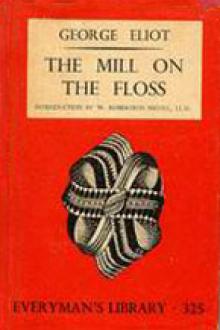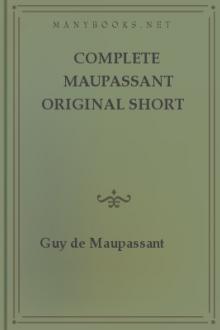Genre Classic. Page - 2

nglish. In this process Homer must lose at least half his charm, his bright and equable speed, the musical current of that narrative, which, like the river of Egypt, flows from an indiscoverable source, and mirrors the temples and the palaces of unforgotten gods and kings. Without this music of verse, only a half truth about Homer can be told, but then it is that half of the truth which, at this moment, it seems most necessary to tell. This is the half of the truth that the translators who use verse cannot easily tell. They MUST be adding to Homer, talking with Pope about 'tracing the mazy lev'ret o'er the lawn,' or with Mr. Worsley about the islands that are 'stars of the blue Aegaean,' or with Dr. Hawtrey about 'the earth's soft arms,' when Homer says nothing at all about the 'mazy lev'ret,' or the 'stars of the blue Aegaean,' or the 'soft arms' of earth. It would be impertinent indeed to blame any of these translations in their place. They give that which the romantic reader of poetry, or the student of th

ight charmed me. I sat down upon a plough opposite, and sketched with great delight this little picture of brotherly tenderness. I added the neighbouring hedge, the barn-door, and some broken cart-wheels, just as they happened to lie; and I found in about an hour that I had made a very correct and interesting drawing, without putting in the slightest thing of my own. This confirmed me in my resolution of adhering, for the future, entirely to nature. She alone is inexhaustible, and capable of forming the greatest masters. Much may be alleged in favour of rules, as much may be likewise advanced in favour of the laws of society: an artist formed upon them will never produce anything absolutely bad or disgusting; as a man who observes the laws, and obeys decorum, can never be an absolutely intolerable neighbour, nor a decided villain: but yet, say what you will of rules, they destroy the genuine feeling of nature, as well as its true expression. Do not tell me "that this is too hard, that they only restrain and p

that our city Jerusalem hadarrived at a higher degree of felicity than any other city underthe Roman government, and yet at last fell into the sorest ofcalamities again. Accordingly, it appears to me that themisfortunes of all men, from the beginning of the world, if theybe compared to these of the Jews (3) are not so considerable asthey were; while the authors of them were not foreigners neither.This makes it impossible for me to contain my lamentations. Butif any one be inflexible in his censures of me, let him attributethe facts themselves to the historical part, and the lamentationsto the writer himself only.
5. However, I may justly blame the learned men among the Greeks,who, when such great actions have been done in their own times,which, upon the comparison, quite eclipse the old wars, do yetsit as judges of those affairs, and pass bitter censures upon thelabors of the best writers of antiquity; which moderns, althoughthey may be superior to the old writers in eloquence, yet arethey

us, from the tokens which his father had put @ under the stone; others that he received his name afterwards at Athens, when Aegeus acknowledged him for his son. He was brought up under his grandfather Pittheus, and had a tutor and attendant set over him named Connidas, to whom the Athenians, even to this time, the day before the feast that is dedicated to Theseus, sacrifice a ram, giving this honor to his memory upon much juster grounds than to Silanio and Parrhasius, for making pictures and statues of Theseus. There being then a custom for the Grecian youth, upon their first coming to man's estate, to go to Delphi and offer first-fruits of their hair to the god, Theseus also went thither, and a place there to this day is yet named Thesea, as it is said, from him. He clipped only the fore part of his head, as Homer says the Abantes did.% And this sort of tonsure was from him named Theseis. The Abantes first used it, not in imitation of the Arabians, as some imagine, nor of the Mysians, but because they were a

eat together." She did this, but it waseasy to see that she did not do it willingly. The frog enjoyed what heate, but almost every mouthful she took choked her. At length he said,"I have eaten and am satisfied; now I am tired, carry me into thy littleroom and make thy little silken bed ready, and we will both lie downand go to sleep."
The King's daughter began to cry, for she was afraid of the coldfrog which she did not like to touch, and which was now to sleepin her pretty, clean little bed. But the King grew angry and said,"He who helped thee when thou wert in trouble ought not afterwards tobe despised by thee." So she took hold of the frog with two fingers,carried him upstairs, and put him in a corner. But when she was in bedhe crept to her and said, "I am tired, I want to sleep as well as thou,lift me up or I will tell thy father." Then she was terribly angry,and took him up and threw him with all her might against the wall. "Now,thou wilt be quiet, odious frog," said she. But when he fe

afore two hourstogether passes my cunning. An' now you put me i' mind," continuedMrs. Tulliver, rising and going to the window, "I don't know where sheis now, an' it's pretty nigh tea-time. Ah, I thought so,--wanderin' upan' down by the water, like a wild thing: She'll tumble in some day."
Mrs. Tulliver rapped the window sharply, beckoned, and shook herhead,--a process which she repeated more than once before she returnedto her chair.
"You talk o' 'cuteness, Mr. Tulliver," she observed as she sat down,"but I'm sure the child's half an idiot i' some things; for if I sendher upstairs to fetch anything, she forgets what she's gone for, an'perhaps 'ull sit down on the floor i' the sunshine an' plait her hairan' sing to herself like a Bedlam creatur', all the while I'm waitingfor her downstairs. That niver run i' my family, thank God! no morenor a brown skin as makes her look like a mulatter. I don't like tofly i' the face o' Providence, but it seems hard as I should have butone gell, an' her s

had come into being firstof all men, contrived a device of the following kind:--Taking two new-born children belonging to persons of the common sort he gave them toa shepherd to bring up at the place where his flocks were, with amanner of bringing up such as I shall say, charging him namely that noman should utter any word in their presence, and that they should beplaced by themselves in a room where none might come, and at theproper time he should bring them she-goats, and when he had satisfiedthem with milk he should do for them whatever else was needed. Thesethings Psammetichos did and gave him this charge wishing to hear whatword the children would let break forth first after they had ceasedfrom wailings without sense. And accordingly it came to pass; forafter a space of two years had gone by, during which the shepherd wenton acting so, at length, when he opened the door and entered, bothchildren fell before him in entreaty and uttered the word /bekos/,stretching forth their hands. At firs

tion with posterity to refuse to accept her fame as a true exponent of her power. And yet they occupy two-fifths of Peloponnese and lead the whole, not to speak of their numerous allies without. Still, as the city is neither built in a compact form nor adorned with magnificent temples and public edifices, but composed of villages after the old fashion of Hellas, there would be an impression of inadequacy. Whereas, if Athens were to suffer the same misfortune, I suppose that any inference from the appearance presented to the eye would make her power to have been twice as great as it is. We have therefore no right to be sceptical, nor to content ourselves with an inspection of a town to the exclusion of a consideration of its power; but we may safely conclude that the armament in question surpassed all before it, as it fell short of modern efforts; if we can here also accept the testimony of Homer's poems, in which, without allowing for the exaggeration which a poet would feel himself licensed to employ, we can

FI A DUEL
VOLUME II.
THE COLONEL'S IDEAS MOTHER SAUVAGE EPIPHANY THE MUSTACHE MADAME BAPTISTE THE QUESTION OF LATIN A MEETING THE BLIND MAN INDISCRETION A FAMILY AFFAIR BESIDE SCHOPENHAUER'S CORPSE
VOLUME III.
MISS HARRIET LITTLE LOUISE ROQUE THE DONKEY MOIRON THE DISPENSER OF HOLY WATER THE PARRICIDE BERTHA THE PATRON THE DOOR A SALE THE IMPOLITE SEX A WEDDING GIFT THE RELIC
VOLUME IV.
THE MORIBUND THE GAMEKEEPER THE STORY OF A FARM GIRL THE WRECK THEODULE SABOT'S CONFESSION THE WRONG HOUSE THE DIAMOND NECKLACE THE MARQUIS DE FUMEROL THE TRIP OF THE HORLA FAREWELL THE WOLF THE INN
VOLUME V.
MONSIEUR PARENT QUEEN HORTENSE TIMBUCTOO TOMBSTONES MADEMOISELLE PEARL THE THIEF CLAIR DE LUNE WAITER, A "BOCK" AFTER FORGIVENESS IN THE SPRING A QUEER NIGHT IN PARIS
VOLUME VI.
THAT COSTLY RIDE USELESS BEAUTY THE FATHER MY UNCLE SOSTHENES THE BARONESS MOTHER AND SON THE HAND A TRESS OF HAIR ON THE RIVER THE CRIPPLE A STROLL ALE

he Woodman seized his axe, and with one stroke cut the Serpent in two. "Ah," said he,
"No gratitude from the wicked."
The Bald Man and the Fly
There was once a Bald Man who sat down after work on a hot summer's day. A Fly came up and kept buzzing about his bald pate, and stinging him from time to time. The Man aimed a blow at his little enemy, but acks palm came on his head instead; again the Fly tormented him, but this time the Man was wiser and said:
"You will only injure yourself if you take notice of despicable enemies."
The Fox and the Stork
At one time the Fox and the Stork were on visiting terms and seemed very good friends. So the Fox invited the Stork to dinner, and for a joke put nothing before her but some soup in a very shallow dish. This the Fox could easily lap up, but the Stork could only wet the end of her long bill in it, and left the meal as hungry as when she began. "I am sorry," said the Fox, "the soup is not to your liking."
"Pray